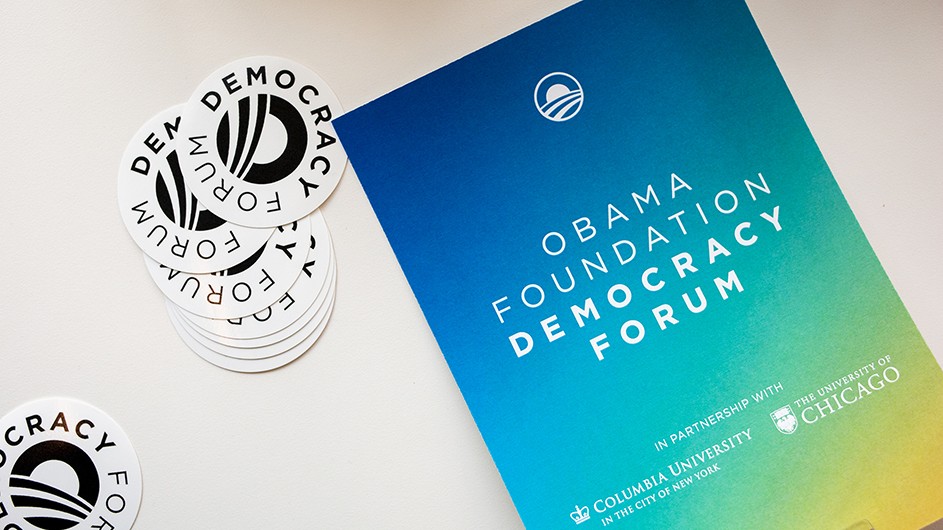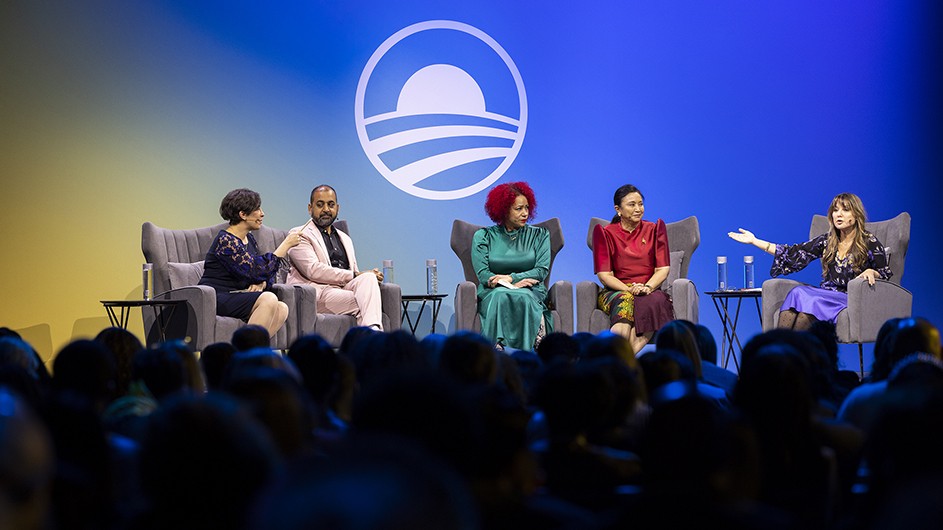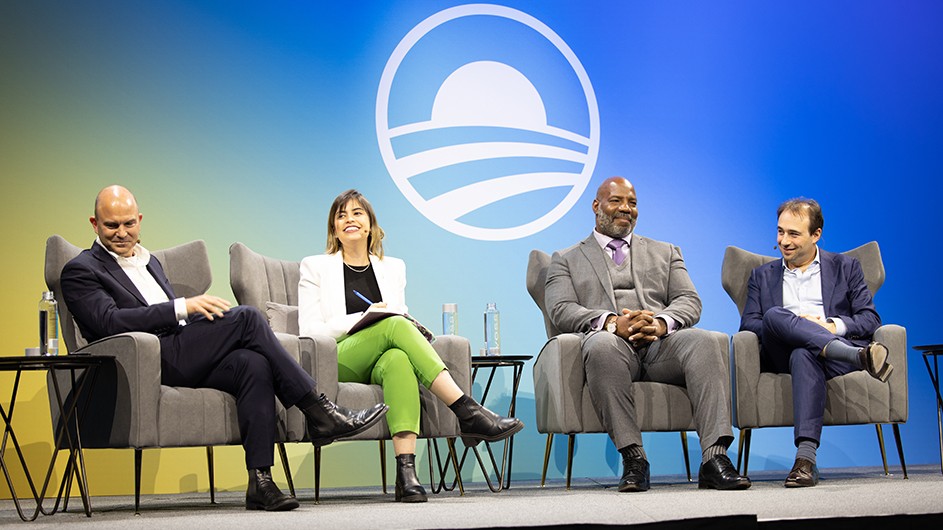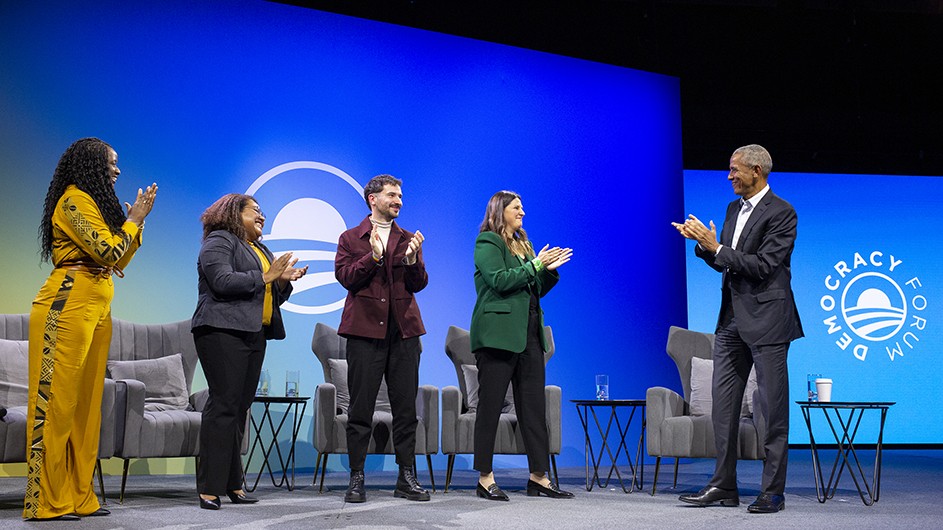Columbians Take Part in the Obama Foundation Democracy Forum
President Bollinger, Jelani Cobb, Natalia Herbst, and Zeynep Tufekci joined in the global event.

Yesterday, the Obama Foundation, in partnership with Columbia University and the University of Chicago, hosted the Democracy Forum in New York City, “a global convening focused on the ideas that are essential to our democracy.” The event featured panel discussions and speeches. The participants came from around the world: emerging leaders from Obama Foundation programs alongside experts from the public, private, and non-profits sectors.
Highlights from the Columbia community include President Bollinger, who kicked off the forum with a brief speech touching on the future of democracy, free speech, and the responsibility of universities to do more to engage with global problems. His opening remarks were followed by those of University of Chicago President Paul Alivisatos and Obama Foundation CEO Valerie Jarrett.

President Bollinger spoke, from his vantage point as a scholar of the First Amendment, about one of the central premises of free speech: that human nature does not naturally respect its principles. He added, “We should expect it to be hard work and continually under challenge, even for the best of us. And indeed, the not infrequent periods of deep intolerance that have defined the American experience are proof of that hard reality.”
He also reflected on the mission of universities to defend not only democracy but also justice, fairness, and the struggle for equality, “especially with respect to racial justice and affirmative action, which presently hangs precariously in the balance before the United States Supreme Court.”
Finally, he discussed the responsibility of universities to do more to meet the needs of society: “We could do much better if we explicitly embraced it as mission and structured ourselves better to align with this mission. At Columbia, we call this the Fourth Purpose of the University, and to help fulfill that mission, we have created Columbia World Projects … where our cherished Obama scholars live and inspire all of us.”

Zeynep Tufekci, director of the Craig Newmark Center for Journalism Ethics and Security at Columbia Journalism School, took part in the panel, “Tackling Disinformation, Protecting Democracy.” She remarked on the need to learn from the past and reflected on the backlash she received for the first column she wrote for The New York Times in 2012. The article, “Beware the Smart Campaign,” was a call to be wary of how technology and data can be used in elections and the potential consequences for the health of our democracy.

Jelani Cobb, dean of Columbia Journalism School, participated in a panel on “Pluralism, Identity, and Democracy.” “One of the interesting dynamics that we’ve seen emerge in the past couple of years in the United States has been this reinvigorated push to sanitize American history,” he said. “What that does is cater to a very particular viewpoint that wants to view American history as a resume, which is simply a litany of the great things that we have done,” he added.
“Why is that a problem,” he asked. “Because it effectively strips us of the ability to use history for a precise purpose, which is to understand your worst failings in the past in order to successfully navigate around them in the present and the future.”

At the end of the event, former President Barack Obama gave remarks about global democracy and the opportunities for rising leaders to secure its future. He then led a panel discussion on the same topic with Obama Foundation leaders, including Natalia Herbst who was an Obama Scholar at Columbia University from 2019 to 2020. Herbst served as Director for Community Organizations at the National Youth Institute of Argentina between 2017 and 2019.
“An unintended effect of democracy has been an experience of civic engagement,” she said. “Civic engagement represents a way of activism, self assertion, and reassures values in underserved communities. This means that inequality is not only affecting opportunities, but also how young people experience democracy and its institutions.”